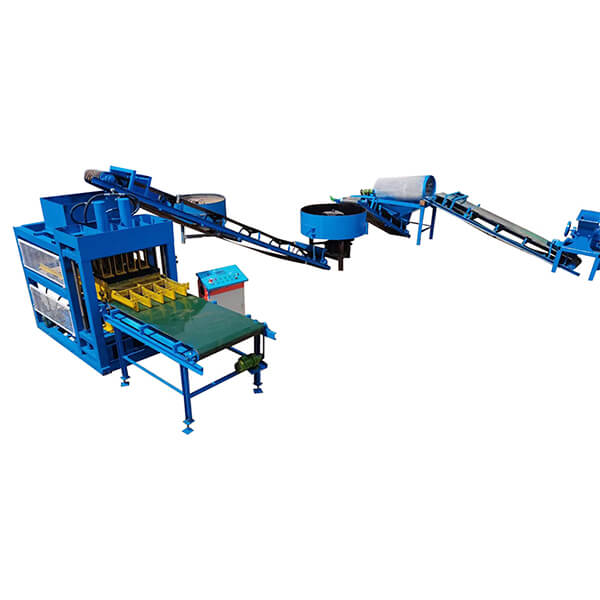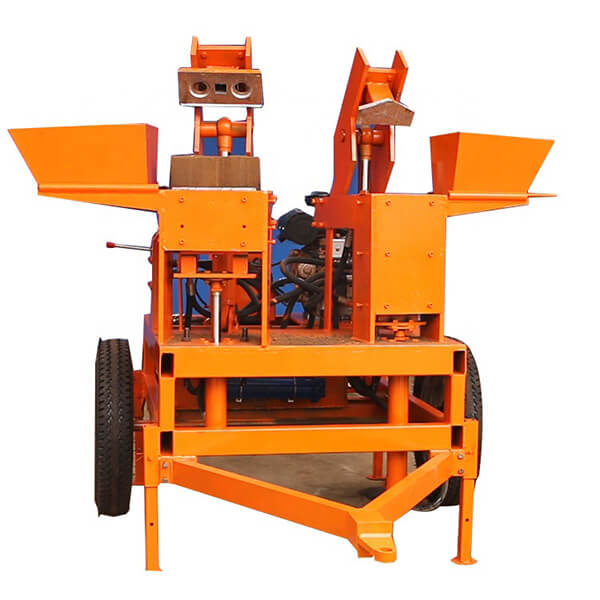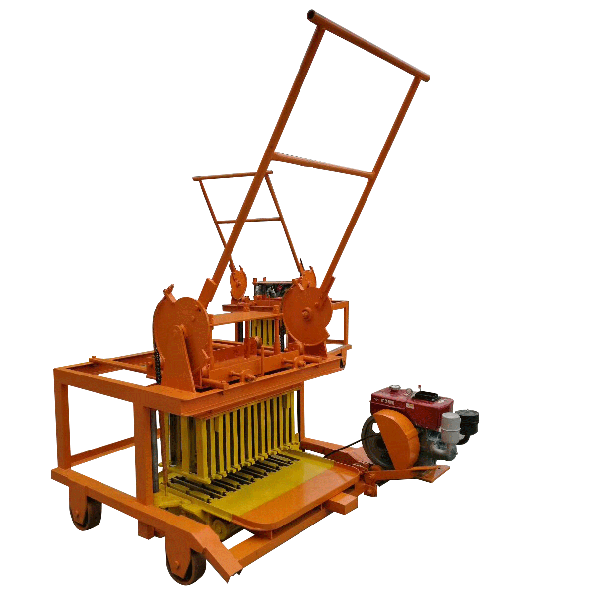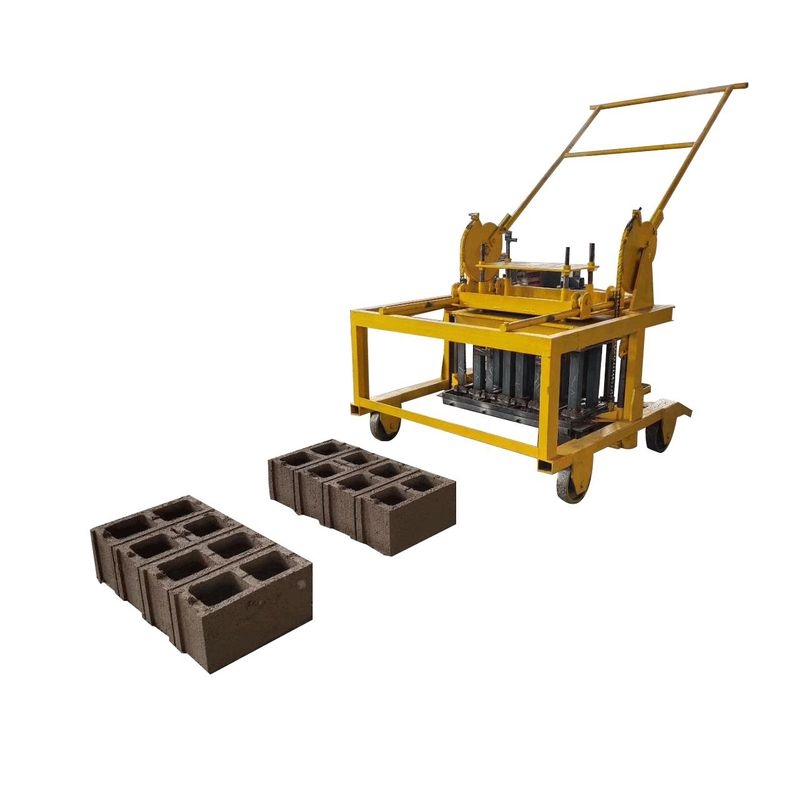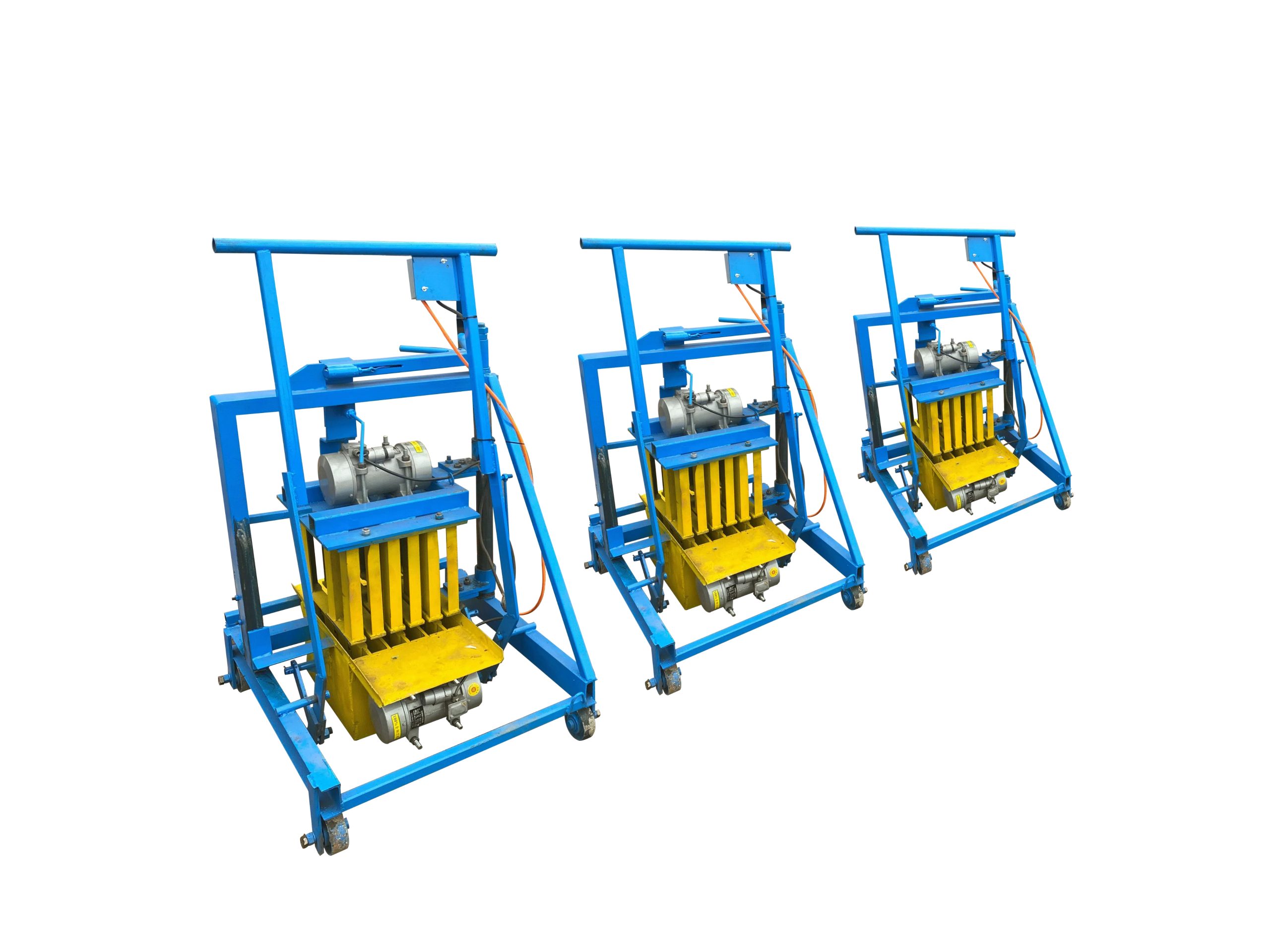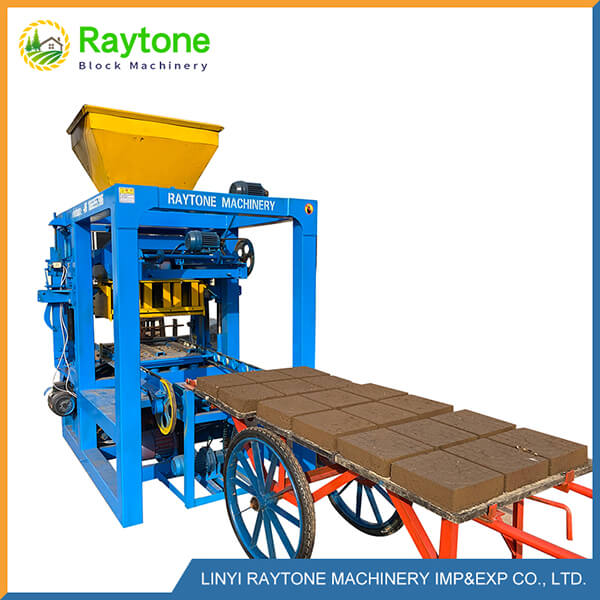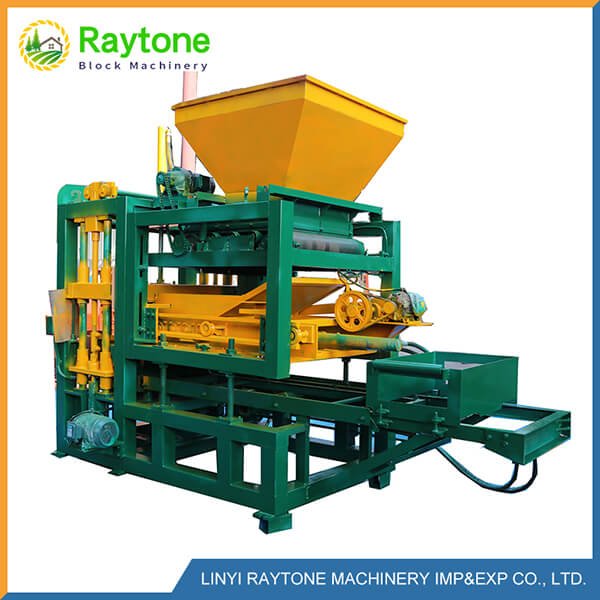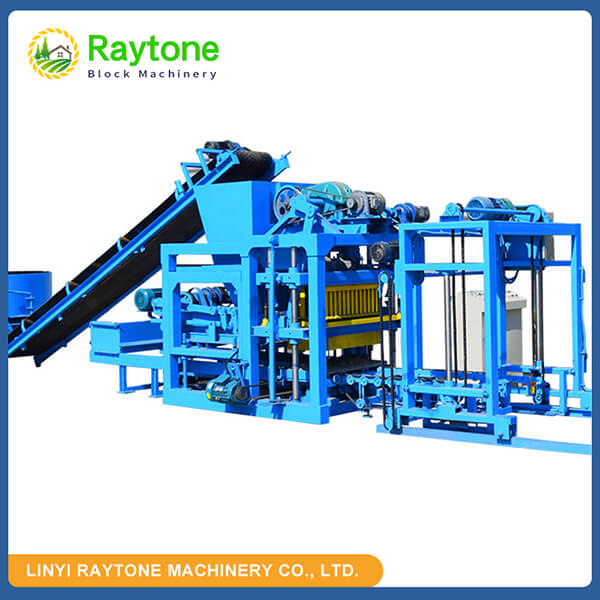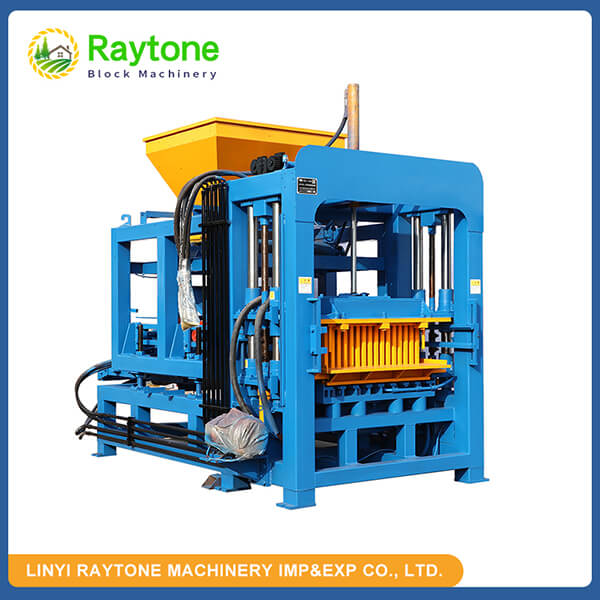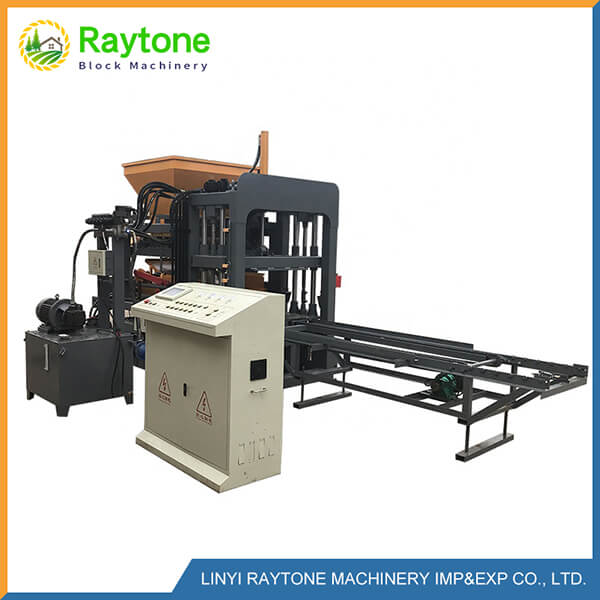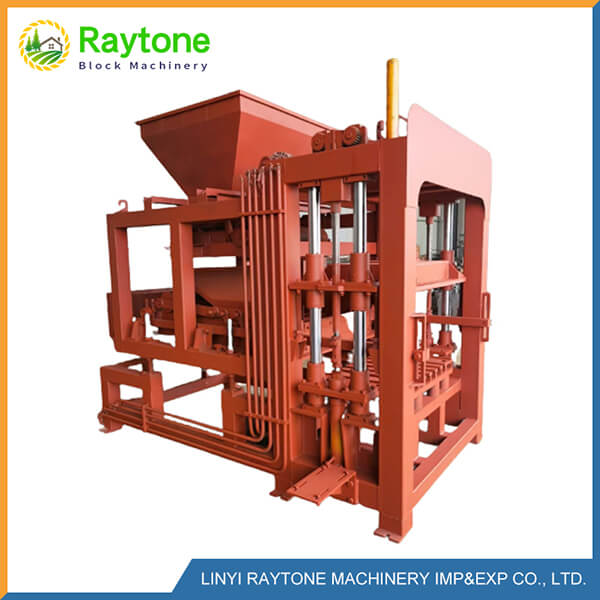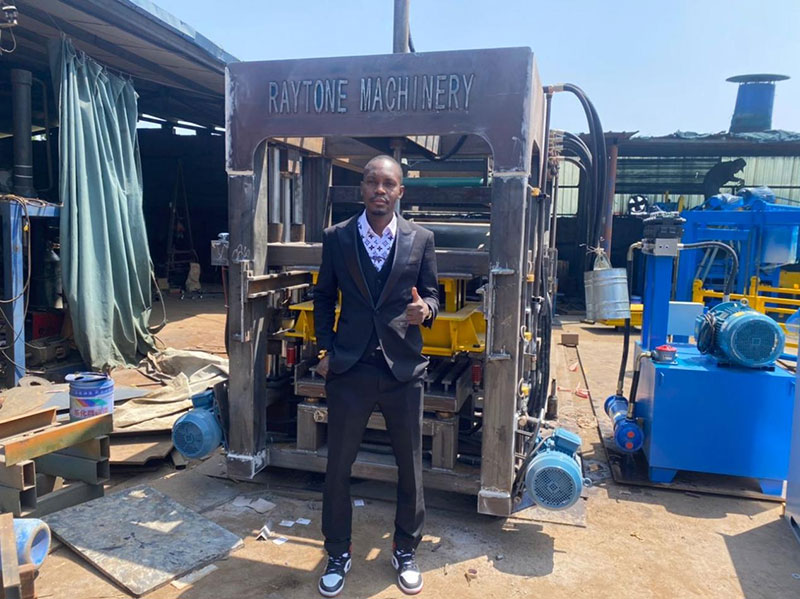An Automatic Hydraulic Concrete Block Machine is a sophisticated piece of equipment designed to produce high-quality concrete blocks efficiently and consistently. This advanced machinery utilizes hydraulic power and automated systems to streamline the block-making process, significantly reducing manual labor and increasing productivity. The machine combines raw materials such as cement, sand, and aggregates, then molds and compresses them into uniform blocks of various shapes and sizes. With features like precise material dosing, powerful hydraulic pressing, and automated pallet feeding and stacking, these machines can produce thousands of blocks per day. The QT4-18 automatic brick making machine is a prime example of such technology, offering versatility and reliability for construction projects of all scales.
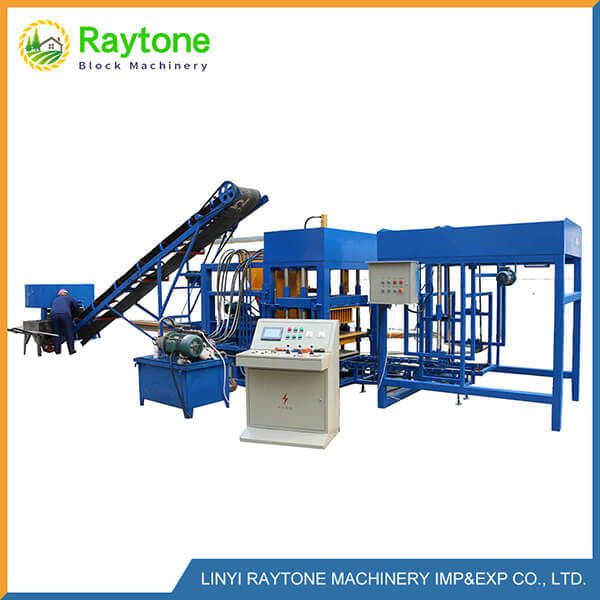
Key Components and Functioning of Automatic Hydraulic Concrete Block Machines
Material Feeding System
The heart of any automatic hydraulic concrete block machine is its material feeding system. This component ensures a consistent and precise mix of raw materials enters the mold box. Advanced machines feature automated hoppers and conveyor belts that transport the perfect ratio of cement, sand, and aggregates. Some systems even incorporate moisture sensors to adjust water content in real-time, guaranteeing optimal mix consistency. The QT4-18 automatic brick making machine, for instance, boasts a high-capacity hopper and efficient belt conveyors, allowing for continuous production with minimal downtime.
Hydraulic Pressing Mechanism
The hydraulic pressing mechanism is crucial for producing dense, durable blocks. It applies immense pressure to the concrete mixture within the mold, compacting it to the desired density. State-of-the-art machines utilize multi-cylinder hydraulic systems that ensure even pressure distribution across the mold. This results in blocks with consistent strength and dimensional accuracy. The pressing force can often be adjusted to suit different block types, from lightweight hollow blocks to solid pavers. In high-end models, computer-controlled hydraulics fine-tune the pressure for each cycle, maximizing block quality and minimizing material waste.
Mold and Vibration System
The mold and vibration system work in tandem to shape the blocks and eliminate air pockets. Modern automatic hydraulic concrete block machines feature interchangeable molds, allowing for the production of various block shapes and sizes. The vibration system, typically comprising powerful motors and eccentric weights, ensures thorough compaction of the concrete mix within the mold. This process is critical for achieving uniform density throughout the block, enhancing its structural integrity. Advanced vibration control systems in machines like the QT4-18 can adjust frequency and amplitude to optimize compaction for different mix designs and block types.
Advantages of Using Automatic Hydraulic Concrete Block Machines
Increased Production Efficiency
One of the primary benefits of automatic hydraulic concrete block machines is their remarkable production efficiency. These machines can produce blocks at a rate that far surpasses manual or semi-automatic methods. For example, a high-capacity model like the QT4-18 automatic brick making machine can churn out thousands of blocks per hour, operating continuously with minimal supervision. This high output is achieved through synchronized automation of all production stages, from material mixing to block ejection and stacking. The elimination of manual handling between steps not only speeds up production but also reduces the risk of human error, ensuring consistent quality throughout large production runs.
Improved Product Quality and Consistency
Automatic hydraulic concrete block machines excel in producing blocks of superior and uniform quality. The precision of hydraulic pressing, combined with computerized control systems, ensures that each block meets exact specifications for size, shape, and density. This consistency is crucial for construction projects, where dimensional accuracy affects structural integrity and aesthetics. Advanced machines offer adjustable parameters for mix composition, vibration intensity, and pressing force, allowing manufacturers to fine-tune production for different block types. The result is a product line with minimal variations, reduced defects, and enhanced durability, meeting or exceeding industry standards consistently.
Cost-Effectiveness and Resource Optimization
While the initial investment in an automatic hydraulic concrete block machine may be significant, the long-term cost-effectiveness is undeniable. These machines optimize resource utilization through precise material dosing and efficient compaction, reducing waste and lowering material costs. The high production rate translates to lower labor costs per block, as fewer operators are required to manage the automated process. Additionally, the durability of machine-made blocks often results in less breakage during handling and transportation, further reducing waste. Energy-efficient hydraulic systems and smart power management in modern machines like the QT4-18 contribute to lower operational costs, making them an economical choice for both small-scale producers and large manufacturing facilities.
Applications and Industry Impact of Automatic Hydraulic Concrete Block Machines
Versatility in Construction Projects
Automatic hydraulic concrete block machines have revolutionized the construction industry by offering unparalleled versatility. These machines can produce a wide array of block types, from standard concrete blocks to specialized interlocking pavers, hollow blocks, and even decorative facing bricks. This versatility allows construction companies to adapt quickly to different project requirements without changing equipment. For instance, the QT4-18 automatic brick making machine can switch between producing foundation blocks, partition walls, and landscaping elements with minimal setup time. This flexibility not only streamlines inventory management but also enables contractors to take on diverse projects, from residential buildings to commercial complexes and infrastructure works, using a single production line.
Sustainable Building Practices
The adoption of automatic hydraulic concrete block machines aligns well with the growing focus on sustainable construction practices. These machines contribute to sustainability in several ways. Firstly, the precision of the manufacturing process minimizes material waste, reducing the environmental impact of production. Many modern machines also incorporate features that allow the use of recycled materials or industrial by-products in the concrete mix, promoting circular economy principles. The durability of machine-made blocks leads to longer-lasting structures, reducing the need for frequent repairs or replacements. Additionally, the energy efficiency of advanced hydraulic systems in machines like the QT4-18 helps reduce the carbon footprint of block production. This combination of resource efficiency and product longevity makes automatically produced concrete blocks a preferred choice for green building projects.
Economic Impact on Construction Industry
The widespread adoption of automatic hydraulic concrete block machines has had a significant economic impact on the construction industry. By dramatically increasing production capacity and efficiency, these machines have helped meet the growing demand for building materials in rapidly developing regions. The consistency and quality of machine-produced blocks have raised construction standards while keeping costs competitive. This has enabled the development of more affordable housing solutions and accelerated infrastructure projects. Moreover, the automation in block production has created new job opportunities in machine operation, maintenance, and quality control, offsetting potential job losses in manual block-making. The economic benefits extend to related industries as well, spurring innovation in concrete mix designs, mold manufacturing, and construction techniques to fully leverage the capabilities of these advanced machines.
Conclusion
Automatic hydraulic concrete block machines, exemplified by models like the QT4-18 automatic brick making machine, represent a significant leap forward in construction technology. These machines offer unparalleled efficiency, quality, and versatility in block production, making them indispensable in modern construction. By automating the block-making process, they not only increase productivity but also contribute to more sustainable and cost-effective building practices. As the construction industry continues to evolve, these machines will undoubtedly play a crucial role in shaping the future of building material production and construction techniques worldwide.
Contact Us
For top-quality automatic hydraulic concrete block machines that can revolutionize your construction projects, look no further than Raytone Machinery. Our cutting-edge equipment, including the versatile QT4-18 automatic brick making machine, offers unmatched performance, reliability, and value. Experience the difference that advanced technology and expert craftsmanship can make in your block production. Contact us today at hazel@raytonechina.com to learn more about our products and how we can tailor our solutions to meet your specific needs.
References
- Johnson, A. (2022). “Advancements in Concrete Block Manufacturing Technology.” Journal of Construction Engineering, 45(3), 287-301.
- Smith, B., & Brown, C. (2021). “Comparative Analysis of Automatic vs. Manual Block Production Methods.” International Journal of Building Materials, 18(2), 112-128.
- Lee, D. (2023). “Sustainability in Concrete Block Production: A Review of Modern Techniques.” Green Building Technologies, 7(4), 201-215.
- Garcia, M., & Rodriguez, L. (2022). “Economic Impact of Automated Block Manufacturing in Developing Countries.” Construction Economics Review, 33(1), 45-60.
- Taylor, R. (2021). “Quality Control in Hydraulic Press Block Production: Best Practices and Challenges.” Construction Quality Assurance, 29(3), 178-192.
- Wilson, E. (2023). “The Future of Construction: Integrating Smart Technologies in Block Manufacturing.” Digital Construction Today, 12(2), 89-104.


